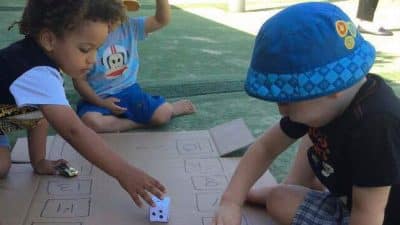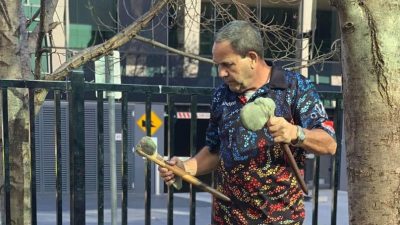Guardian Tempe’s Crayon Melting Experiment
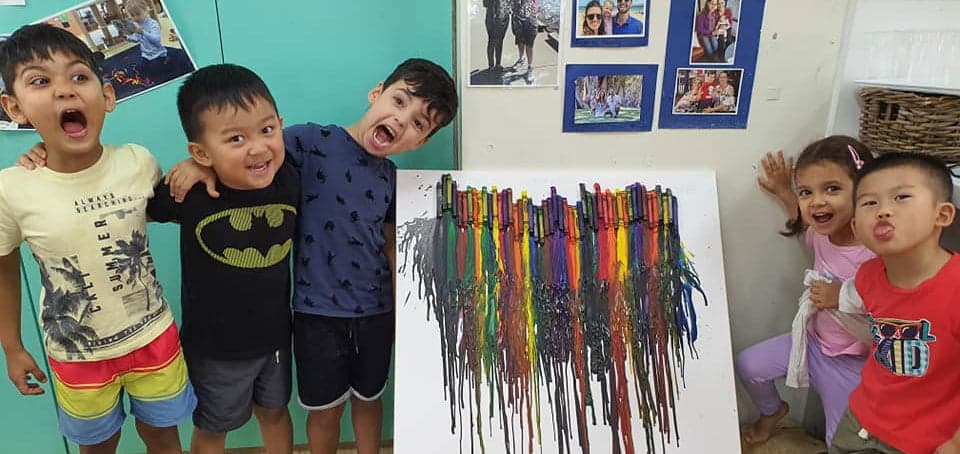
To further explore the preschool children’s interest in colours and mixing them, the team at Guardian Childcare & Education Tempe organised a crayon melting experiment.
“As the preschoolers have been expressing a lot of interest in colours, we presented them with a science-based, hands on experience, which is their preferred way of learning,” explains Assistant Centre Manager, Kristina.
“The children approached the experience as a science experiment which led to many questions and theories being formed before, during and after the experiment.”
Before beginning the experiment, the children discussed whether a hair dryer would successfully melt the crayons and if the crayon colours would melt together.
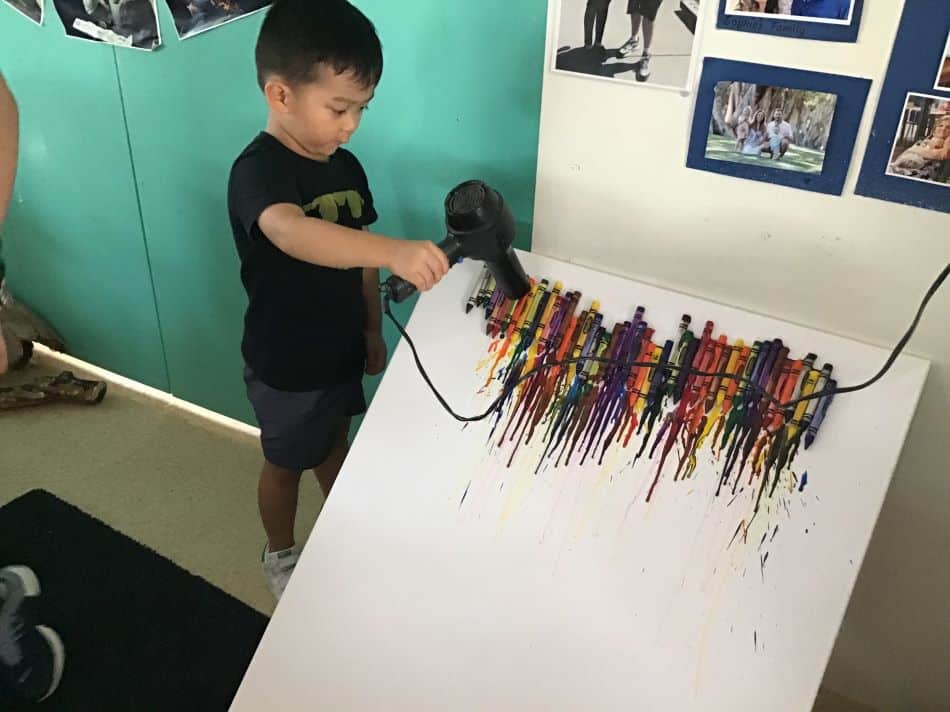
They posed the following questions before assembling their materials:
“Do you think the crayons will melt?”
“How long do you think it will take to melt them?”
“Do you think they will melt down to the bottom?”
“How will the colours blend into one another?”
“The experiment itself was fairly simple to organise. Once we had secured all of the necessary resources, the children took care to glue the crayons onto a canvas the day before our experiment was due to take place,” shares Kristina.
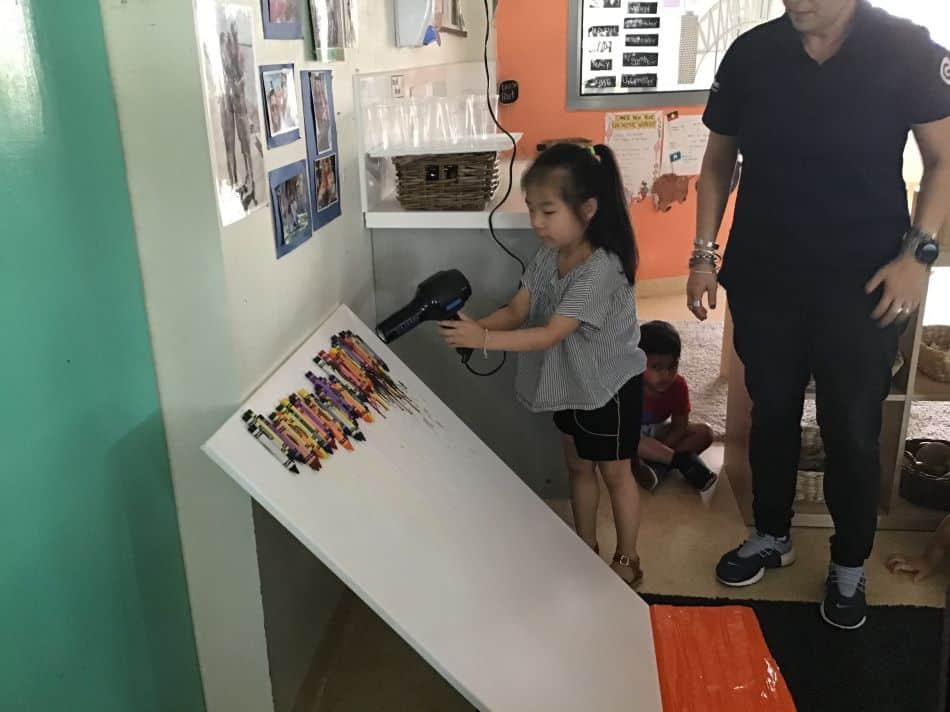
“They were very excited to arrive at the Centre the next morning and get started. Using a hair dryer, each of the children had a turn melting the crayons and together they created a unique piece of art.”
“As we had chosen quite a large canvas, it took a while to complete the experiment. The children were so patient throughout the experience, and all chose to sit and watch the crayons melt instead of going back to play after their turn.”
“Overall, the experiment took around 45 minutes, and the preschoolers remained engaged, fascinated and continued to comment when they would observe a colour, or two colours mixing.”
The crayon melting experiment explored the following learning opportunities:
- Children develop dispositions for learning such as curiosity, cooperation, confidence, creativity, commitment, enthusiasm, persistence, imagination and reflexivity.
- Children develop a range of skills and processes such as problem solving, inquiry, experimentation, hypothesising, researching and investigating.
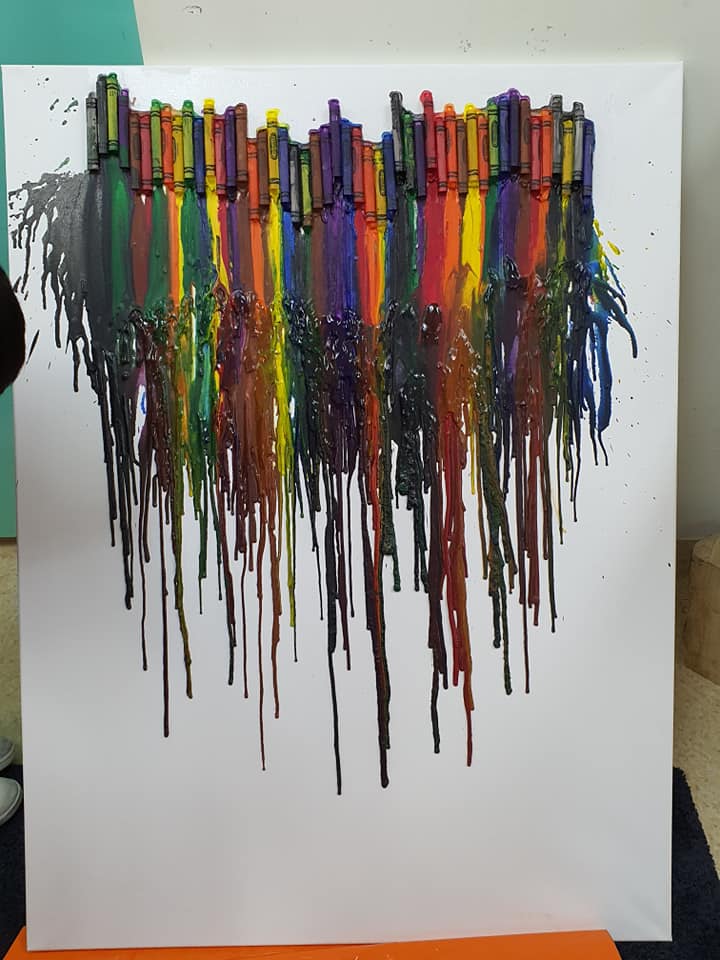
“We received a lot of supportive family feedback from the experiment, with many families loving the science-based learning approach the preschoolers have been taking,” says Kristina.
“Our team looks forward to continuing to experiment with the preschool class, and creating interest-led learning experiences for the children.”
Looking for the right Childcare Centre for your Family?
Submit your details and a member of our Concierge Team will be in touch to discuss what you need and how we can help you experience something more than childcare.
We'll be in touch soon.





